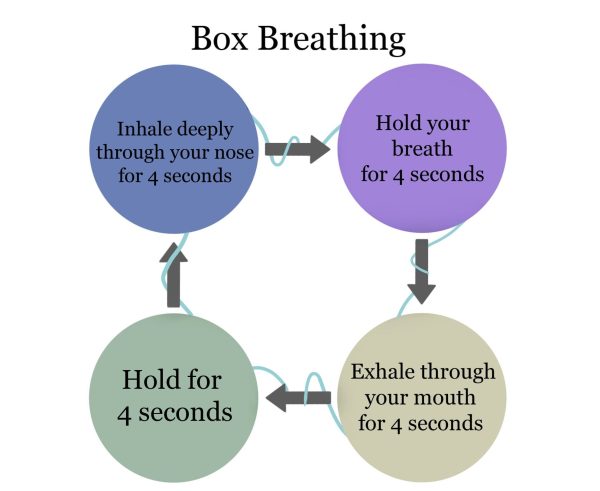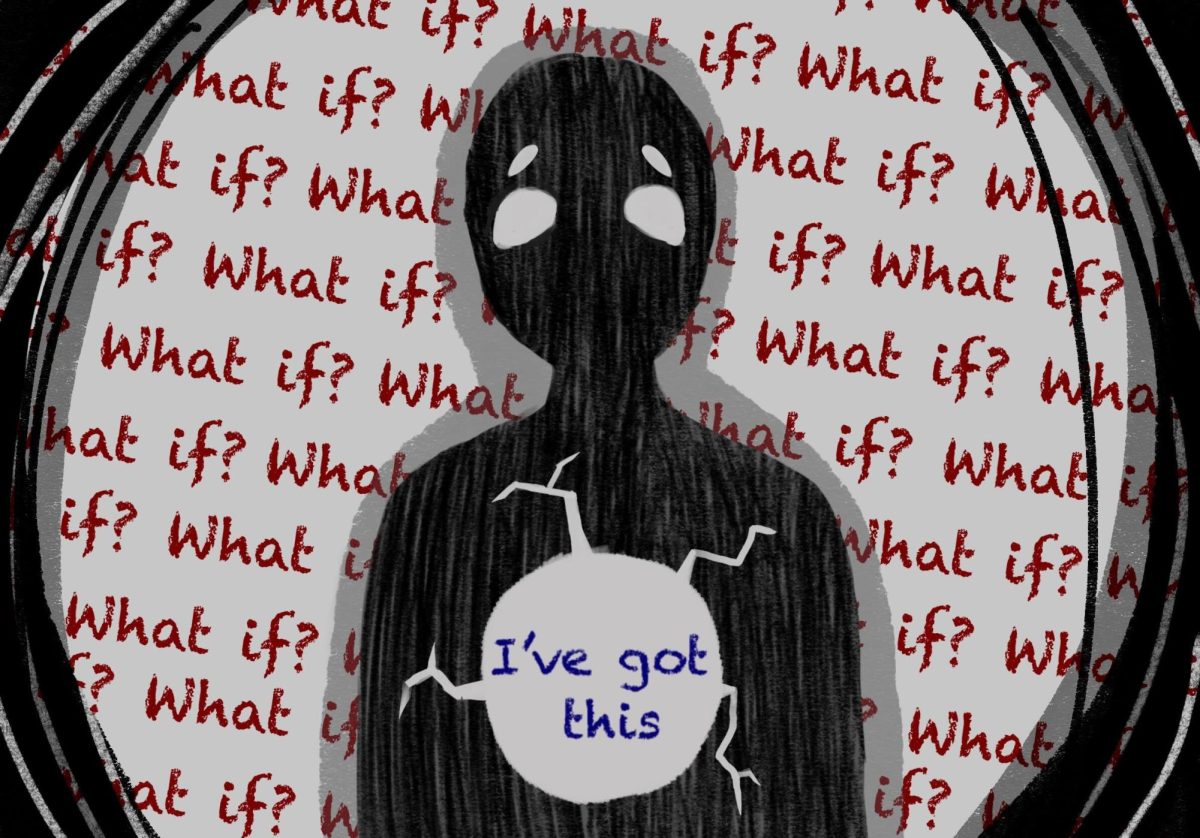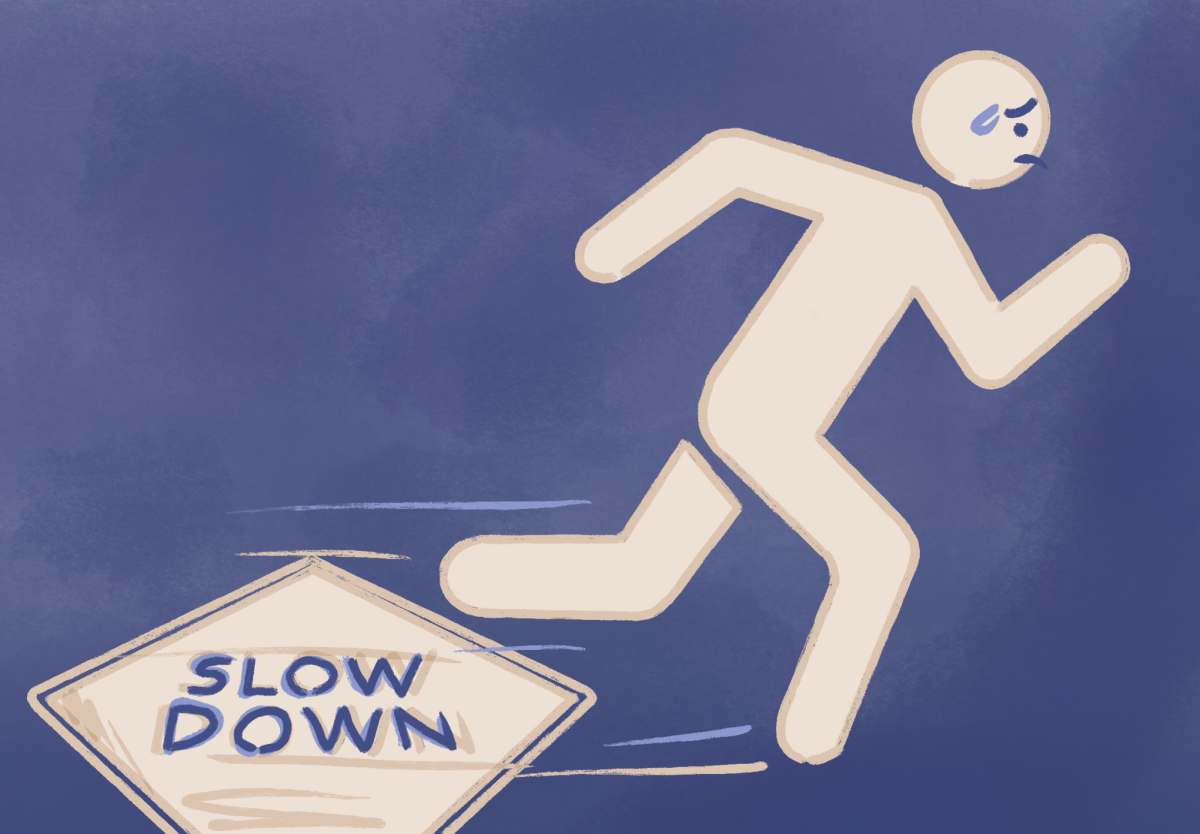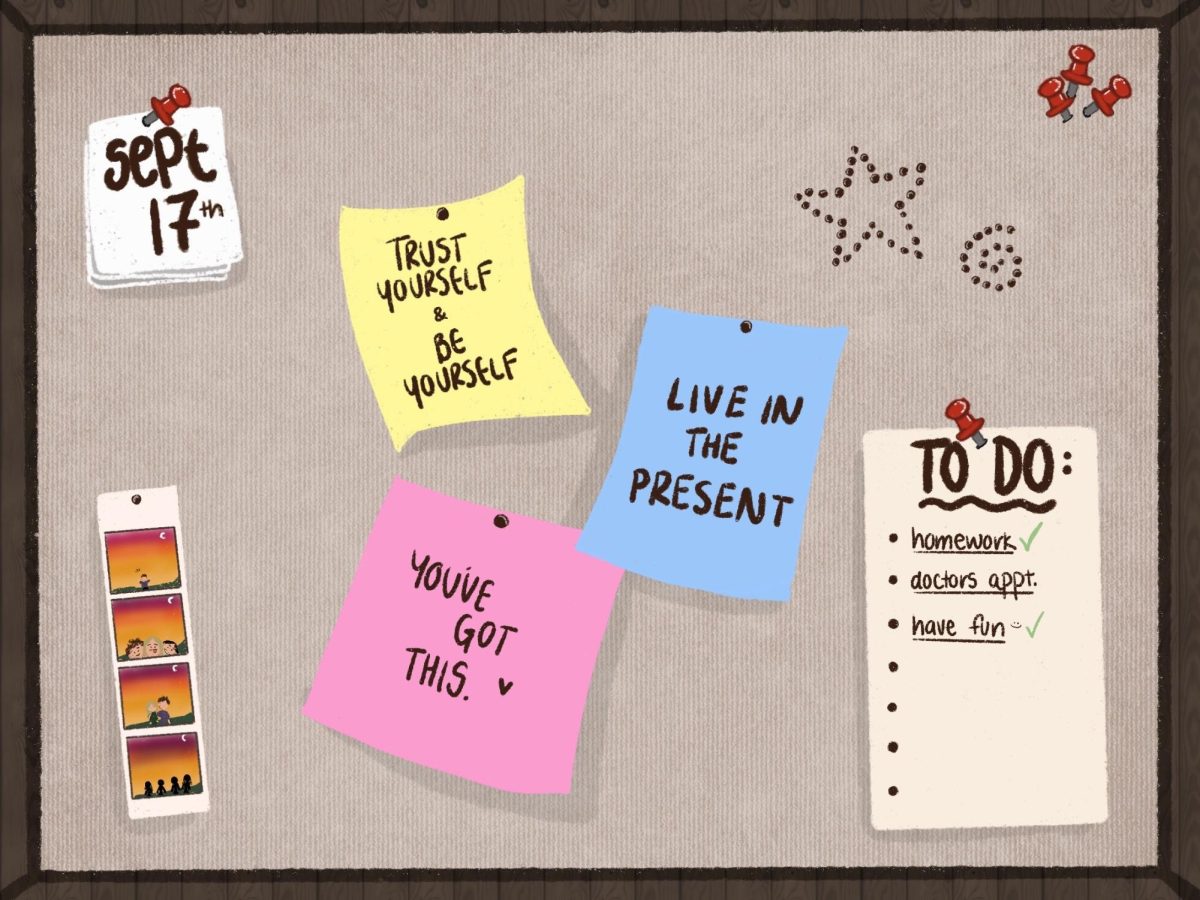The end of the first semester is nearly here, and with it, the time many students dread is looming: finals week.
Pressure to do well on exams, difficulty balancing workloads, and general uncertainty are just some aspects of finals that can make this time unbearably stressful for students. As someone who has struggled with anxiety most of my life, I am no stranger to the late nights and self-doubt that go hand-in-hand with the end of the semester.
I can’t count how many times I have spent hours studying, using as many resources as possible, just to show up to my test and still feel unprepared.
Fear of failure and test anxiety is something that so many high schoolers deal with. Moreover, much of the go-to advice for dealing with this kind of stress and anxiety can come off as overly simple. For people like myself whose anxiety surrounding testing can cloud focus and decision-making skills, being told to just study or relax can feel like meaningless and dismissive suggestions.
Sometimes simply reviewing the material isn’t enough to overcome your own thoughts.
So when your stress is louder than your reasoning, what can you do?
This is where adopting and understanding effective strategies can make a huge difference. Overcoming any form of anxiety requires much more than pushing aside or ignoring one’s emotions. It takes intentional steps towards healthy coping mechanisms.
There are numerous practical methods that can help quiet the loud noise of anxiety and allow you to perform your best this finals season.
Reconsider your studying method
When taking a test, uncertainty can be one of your biggest enemies. Try out different learning techniques, such as flashcards, group study, and practice problems, to name a few. Then tailor your studying approach to your own needs.
In addition, setting a schedule can make said studying much more manageable. Techniques like the Pomodoro method — studying for 25 minutes followed by a five minute break — can also help split up the workload.
Be mindful of your perspective
Outside of studying, when going into any stressful or high pressure situation, the narrative you tell yourself can affect your ability to do your best work.
The stories and ideas you have for and about yourself have large impacts on the ways you move through life. The Harvard Business Review argues that when you allow your personal narrative to become overly affected by external pressures and opinions, it can directly alter your performance.
Therefore, it’s crucial to challenge your negative thoughts. Replacing regret and doubt with self-assurance and acceptance can allow you to stay present and grounded.
Make use of calming techniques
When you are overwhelmed or under a lot of stress, it’s imperative to remember how to calm yourself down in the moment.
Breathing exercises such as box breathing and physical methods like progressive muscle relaxation can help slow your body down, making room for cognizant thoughts.
For box breathing, which is used to help regulate your breathing and calm your parasympathetic nervous system, you start by deeply inhaling for four seconds, then you hold your breath for another four seconds, followed by exhaling for four seconds, and finally pausing for four seconds. You can repeat this sequence as many times as necessary.

Progressive muscle relaxation, a technique originally developed by Dr. Edmund Jacobson in the 1920s and used to train the body to release tension, involves tensing each individual muscle within your body one at a time for a few seconds, then releasing that tension. As physical tension is often a direct outcome of stress, relaxing your body prior to or during stressful situations such as exams can help with overall focus and mood.
Avoid comparisons
Focus on yourself and your own journey. Everyone learns differently, and has their own strengths and weaknesses.
Keeping that in mind can relieve some unnecessary pressures you may be putting on yourself, which will likely lead to less stress and self-doubt.
Talk to your teacher
Never be scared to ask for help when you need it.
The teachers here at La Salle want you to do well. They are here to help you. Simply talking out your concerns or areas you aren’t fully understanding can make a big difference on testing day. Furthermore, if test anxiety is seriously affecting your performance, consider speaking with your counselor about accommodations. Advocate for yourself.
These techniques should all help relieve some of the pressure that comes with finals, and can also be applied to other stressful situations.
Keep in mind that your scores don’t determine your worth, and take care of yourselves.
Good luck next week, Falcons!










Chris Babinec • Jan 16, 2025 at 8:03 am
An excellent piece with clear, practical how-tos for stress reduction, and tips for shifting perspectives. Important notes on separating a human’s worth and value from what they produce. Nice work!